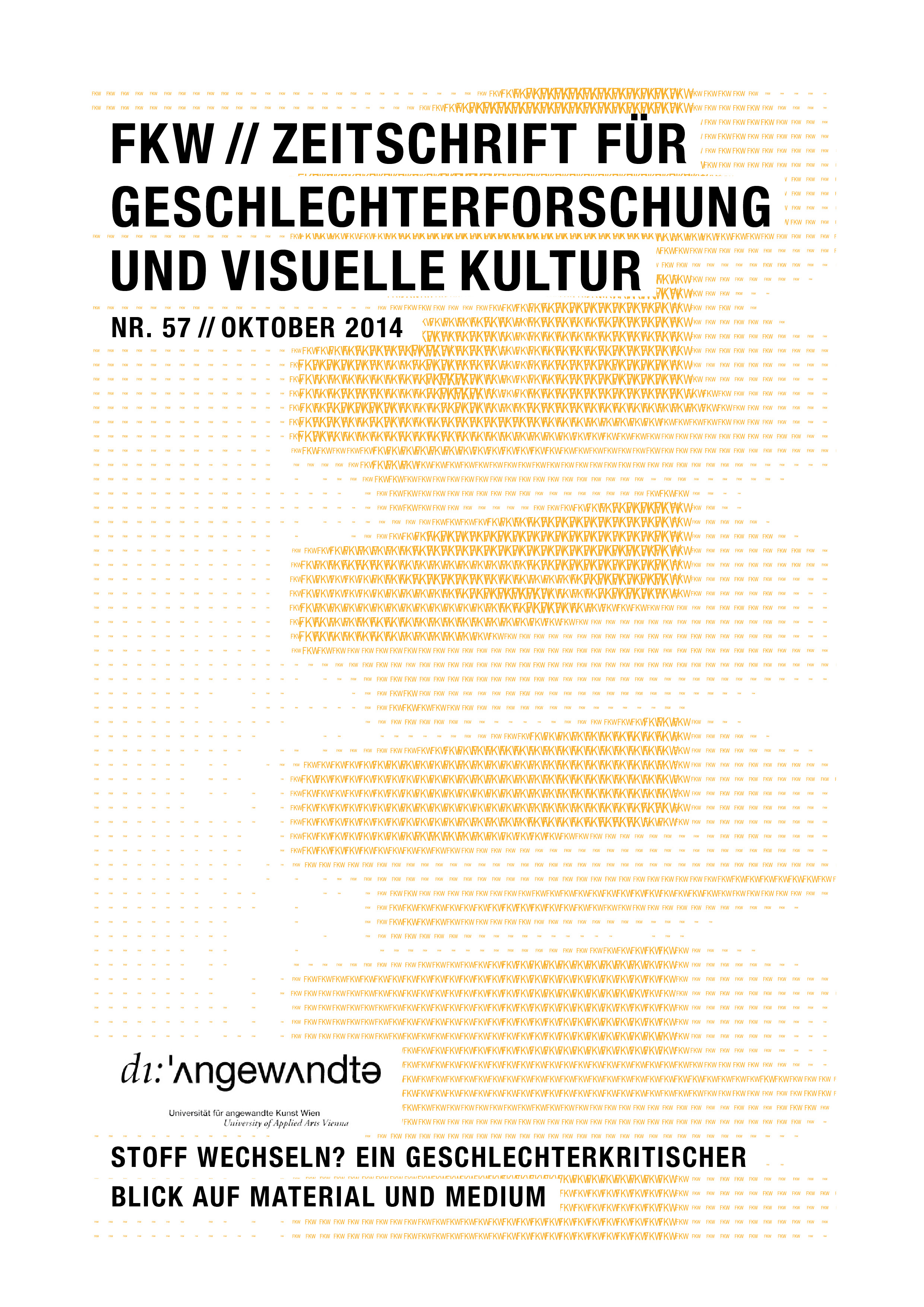Vom Begehren nach Materialität: Sonischer Dreck, Exploitationkino, feministische Theorie / Longing for Materiality: Sonic Dirt, Exploitation Cinema, Feminist Theory
DOI:
https://doi.org/10.57871/fkw5720141306Abstract
Der rezente ‚material turn‘ fordert mehr kritische Aufmerksamkeit für Textur, Haptik, materielle Beschaffenheit von Medien sowie die Einbeziehung von nicht-menschlicher agency in Analysen von Interaktionen zwischen Mensch und Objekt. Der vorliegende Beitrag beleuchtet das Potenzial dieser Öffnung zur Materialität für eine feministische Auseinandersetzung mit amerikanischem Exploitation- und Trash-Kino ab den späten 1960er Jahren. Der Fokus liegt dabei auf exzessiven Sound-Materialitäten: auf Störgeräusch, Verschmutzung, Verzerrung und Abnutzung in der Tonspur von Herschell Gordon Lewis ‘ Biker-Exploitation-Klassiker She-Devils on Wheels (1968). Mit Blick auf spätere queere und feministische Film- und Videoarbeiten (v.a. von Michael/Meredith Lucas), welche direkt auf exzessive Sound-Texturen in Lewis‘ Werk Bezug nehmen, thematisiert der Beitrag zwischen Bedeutung und Affekt oszillierende Resonanzen, welche Dichotomien von Sprache und Materialität zu sprengen versprechen.
Current developments in cultural studies and queer feminist theory point towards a ‚material turn‘, which calls for addressing the material bases of media etc. as significant and potentially agential in political and cultural dynamics. This turn aims towards a deconstruction of modern binaries (mind vs. body, culture vs. matter, meaning vs. affect), which also shape hegemonic conceptions of sex, gender and desire.
This paper explores the critical potential of this turn for a feminist engagement with American exploitation cinema of the later 1960s. I focus on excessive sound textures: on noise, distortion, dirt and wear in the audio track of Herschell Gordon Lewis’ She-Devils on Wheels. By tracing the affective-meaningful resonances sonic dirt may activate, I ask how material criticism provides productive perspectives in dealing with two central, yet problematic categories in feminist cultural criticism: agency and the sovereign subject.Downloads
Ausgabe
Rubrik
Lizenz
Die Autor_innen behalten das Copyright und treten keine exklusiven Nutzungsrechte an FKW ab.
Ab 2017 erscheinen alle Texte von FKW // Zeitschrift für Geschlechterforschung und visuelle Kultur unter der LizenzCC-BY-NC-ND Lizenz 4.0 International (Creative Commons, Namensnennung, Nicht Kommerziell, Keine Bearbeitung 4.0 International). Der Lizenzvertrag ist abrufbar unter: https://creativecommons.org/licenses/by-nc-nd/4.0/legalcode.de, eine allgemein verständliche Fassung unter: https://creativecommons.org/licenses/by-nc-nd/4.0/deed.de
Von 2013 bis 2016 sind alle Texte von FKW // Zeitschrift für Geschlechterforschung und visuelle Kultur unter der Digital Peer Publishing Lizenz (DPPL) erschienen. Der Lizenztext ist im Internet abrufbar unter der Adresse: http://nbn-resolving.de/urn:nbn:de:0009-dppl-v2-de3
Die Abbildungen in Ihrem Beitrag
Die Autor_innen verpflichten sich, die Abdruckgenehmigung für die in ihren Texten verwendeten Bilder bei der jeweiligen, die Bildrechte verwaltenden Institution einzuholen und die zuständige Herausgeberin über das Ergebnis zu informieren. Wir weisen darauf hin, dass die Verwendung von Bildern in wissenschaftlichen Texten gewöhnlich als Zitat angesehen und entsprechend kostenfrei gewährt wird.





